Questioning the quality of the food you consume is something worth doing. But what exactly defines "good" food? We aren’t just asking what tastes good or looks good, but rather what food is good down to its core, and what separates it from all the other junk? The answer seems pretty clear: fruits and vegetables are good, sweets and candies are not so good. But sometimes to know why something is truly "good," you have to be able to identify and understand what makes something "bad."
"It isn’t just how you cook it, it is what you cook," says Dr. Michael Hirt, internist and board certified nutritionist at the Center for Integrative Medicine.
We spoke with Dr. Hirt and four other doctors across the country in various stages of their careers and lives to find out what foods they won't eat, why they don’t eat them, and how they feel this information can help you. After all, you ask a doctor’s opinion on everything, so why not ask what they do to keep healthy? But to begin, a disclaimer:
"The dietary habits of doctors range from quite unhealthy to fairly unhealthy," explains Dr. Rohit Chandra, child and adult psychiatrist at Massachusetts General Hospital-Chelsea and instructor in psychiatry at Harvard Medical School. "Doctors are notorious for not taking care of themselves, especially [when it comes to] exercise and overwork[ing], but perhaps diet as well. So one should keep in mind that doctors as a whole may not eat as well as one might imagine."
With that being said, in general the doctors we spoke with all commented on how they see patients daily who are in a compromised state of health because of the foods they consume. After watching patients back themselves into a nutritional corner for years, it is fair to say that these doctors are compelled to live their best nutritional life and practice what they preach. Dr. Hirt says, "It all comes down to the three S’s. Sleep, stress, and sugar — that is what is killing this country."
The problem, unanimously, begins with a lack of education, from kindergarten to in some cases even medical school. While there are resources out there like Choose My Plate, there are barriers to self-education, ranging from low economic status to the unavailability and plain ignorance regarding food labeling.
"We need to advertise on a massive level," says Dr. Luis Pacheco, family practice and medical director of transitional care at the California Hospital Medical Center, who caters to families that may not have access to online educational tools. "Wellness and healthy options need to be put in the classroom. We are going to have a devastating epidemic that has already started with heart conditions and diabetes."
The education problem surrounding nutrition even goes as high as medical school.
"Only about half of medical schools offer a mandatory nutrition course," explains Dr. Chandra. "The medical school I attended for one year of graduate school had one, whereas the four-year medical school I attended did not. The pedagogy in medical school nutrition courses likely involved the USDA's food pyramid (which appears to promote carbohydrate consumption and dairy consumption at the expense of other proteins, high-fiber foods, and good fats), [so] the advice [a doctor] gives to you may not be accurate."
Dr. Chris Tolcher, pediatrician and spokesperson for the American Academy of Pediatrics, knows that when it comes to choosing a healthy diet there are many things to consider. "I am a big believer in practicing what I preach," he says. "I tell my patients, 'Hey I eat this thing, too, but I do so in moderation.' There are foods we have evidence for as being harmful, and foods we have theories on that come down to a personal choice of what we feel is an OK risk or specific dietary needs."
While the doctors we consulted of course have differing opinions on what foods they would never eat themselves, there were a few unanimous choices. For instance, "processed meats [like] bologna, ham, and hot dogs, all of which are high in nitrates, fats, and salt," says Dr. Joseph Maroon, University of Pittsburgh Medical Center neurosurgeon and vice chairman of the University of Pittsburgh School of Medicine's department of neurological surgery. Maroon was the longtime team neurosurgeon for the Pittsburgh Steelers and also just finished his fifth Ironman Triathlon in Hawaii... at age 73. Other choices included unpasteurized milk, soft drinks, and even a few surprising foods you’ll have to click through our slideshow to see.
So get ready for some awesome nutrition education straight from the doctor’s mouth.
1. Ice Cream
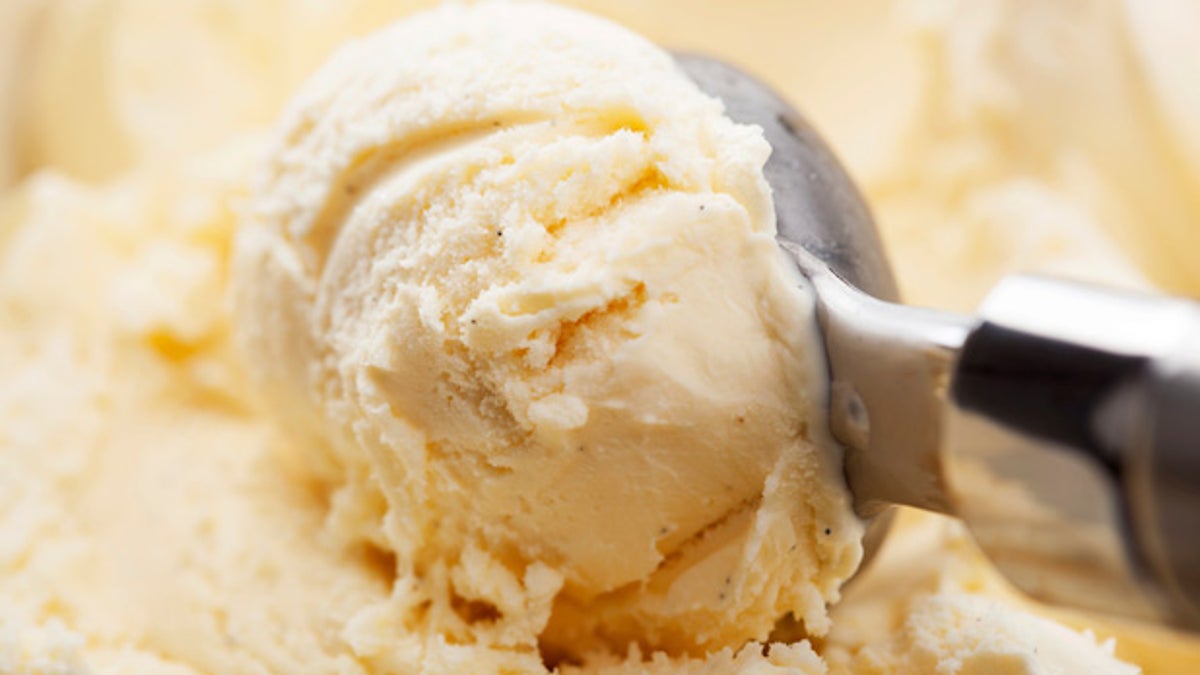
(iStock)
You may actually scream about ice cream when you hear what doctors have to say about it.
"The worst food for humans," states Dr. Hirt. "It is chock-full of chemicals, hormones, and pasteurized dairy. Pasteurization changes the proteins of milk. It has saturated fats and, worst of all, sugar in it." And as far as his opinion on frozen yogurt? "Not much better at all. It all has sugar, which has ruined more of human civilization than any ingredient."
2. Fruits and Vegetables
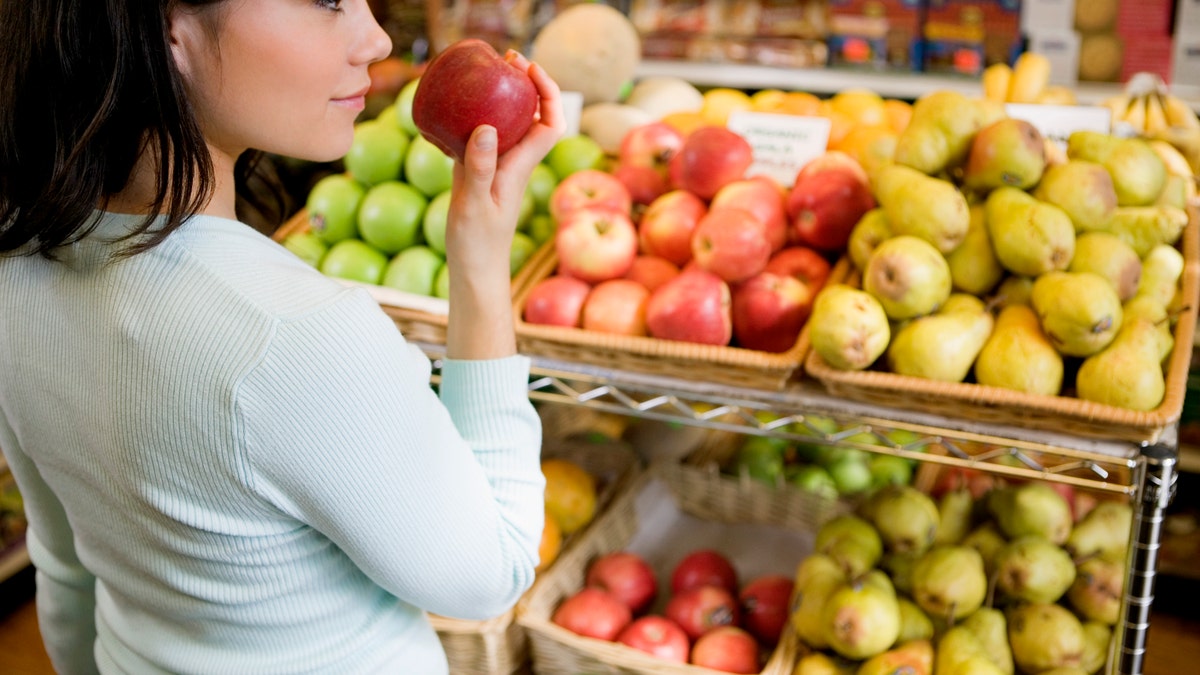
Woman grocery shopping (Jupiter Images/The Daily Meal)
Well, the ones on the Environmental Working Group's Dirty Dozen list! Dr. Chandra suggests buying these organic to avoid pesticides. "Avoid anything with an ingredient you might see in chemical equations from your 10th grade chemistry class," he quips. "Let's say sodium benzoate + potassium bromate = food I-will-not-eat."
3. Soda, Juice, and Energy Drinks
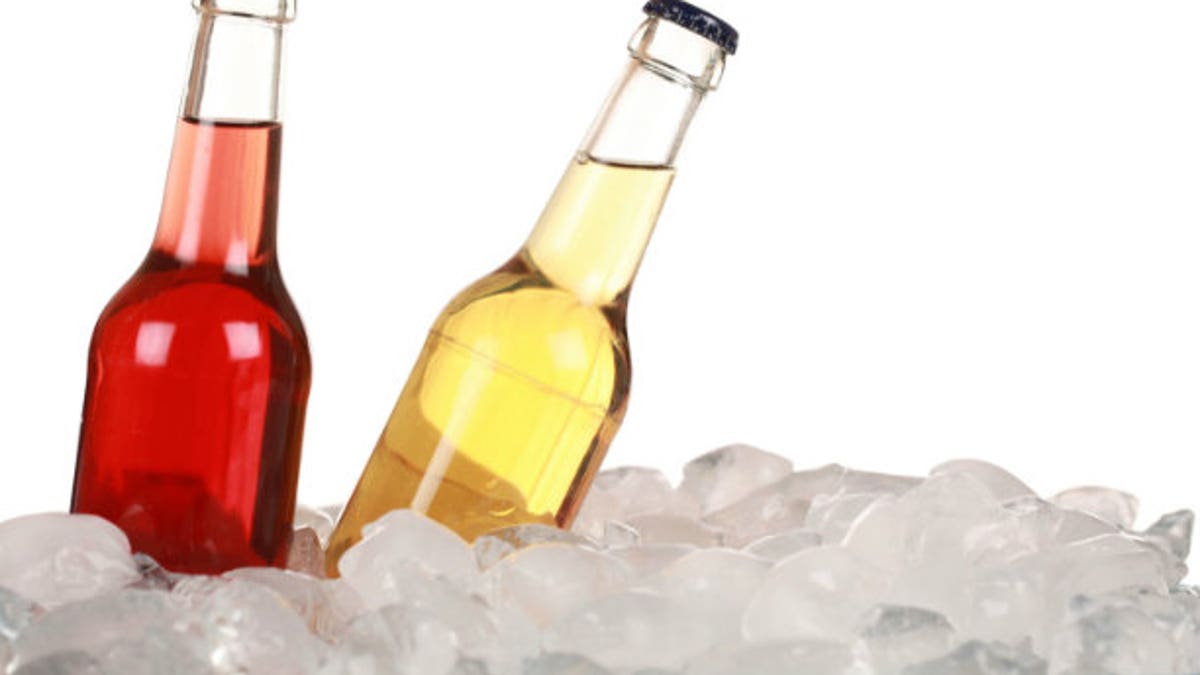
(iStock)
We all know that these are some of the worst offenders, "because of the extremely high sugar content and acidity," says Dr. Chandra. "This is toxic to your teeth and leaches calcium from your bones in addition to contributing heavily to obesity because of the sugar content. No ifs, ands, or buts, just avoid them." And the other doctors couldn’t agree more. "Soft drinks are liquid candy," confirms Dr. Tolcher. "Pick eating an apple over drinking apple juice; most of the juices say right there on the bottle 'contains no fruit!'" And as far as energy drinks go: "Too many stimulants," scorns Dr. Pacheco. "Some studies [show] that there is increased platelet aggregation along with heart problems. Caffeine is fine for bodies but excessive quantities are a problem."
4. Artificially Colored Foods
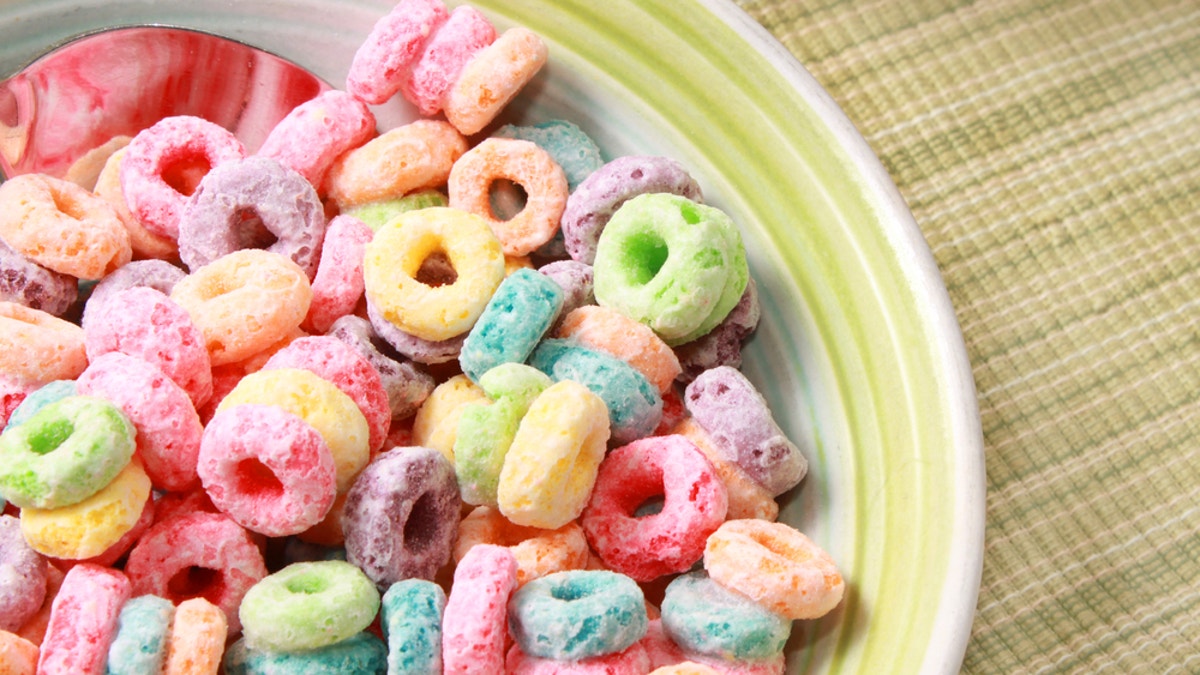
(iStock)
"If it has a color with a number next to it, steer clear away," advises Dr. Chandra. "Compounds like yellow #5 (tartrazine), red #40, and blue. The #1 (brilliant blue) is derived from coal tars and they have all been shown to cause allergic reactions. Yellow #5 has been persuasively linked to cancer and ADHD. Many artificial colors were banned in Europe after research showed ill effects and consumers protested. However, we still allow them in the U.S. Froot Loops, Lucky Charms, and those weird blue Slurpees at 7-11 may taste good but they are almost the definition of toxic."
5. Cold Cuts
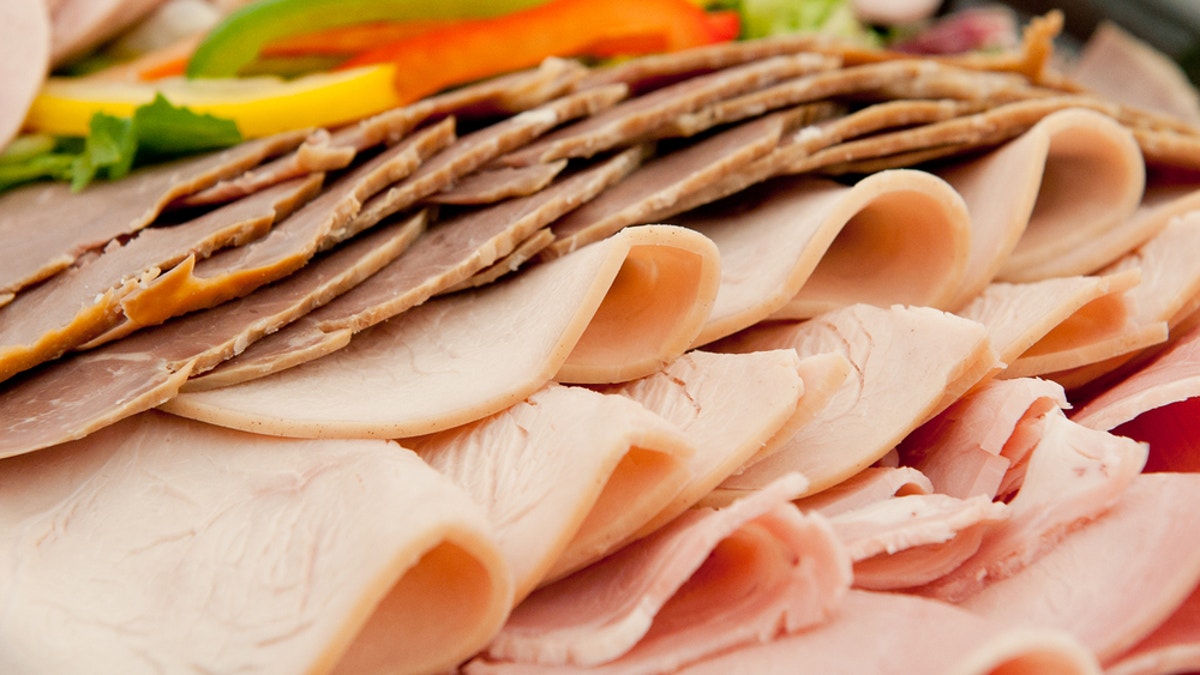
(iStock)
"These are among the worst processed foods because of the high fat and high sodium content but even more so the nitrates used as preservatives," shares Dr. Chandra. "These have been linked to stomach cancer among other illnesses." It is important to remember that this includes products like hot dogs, as Dr. Maroon pointed out earlier.
6. Processed Chicken and Farmed Fish
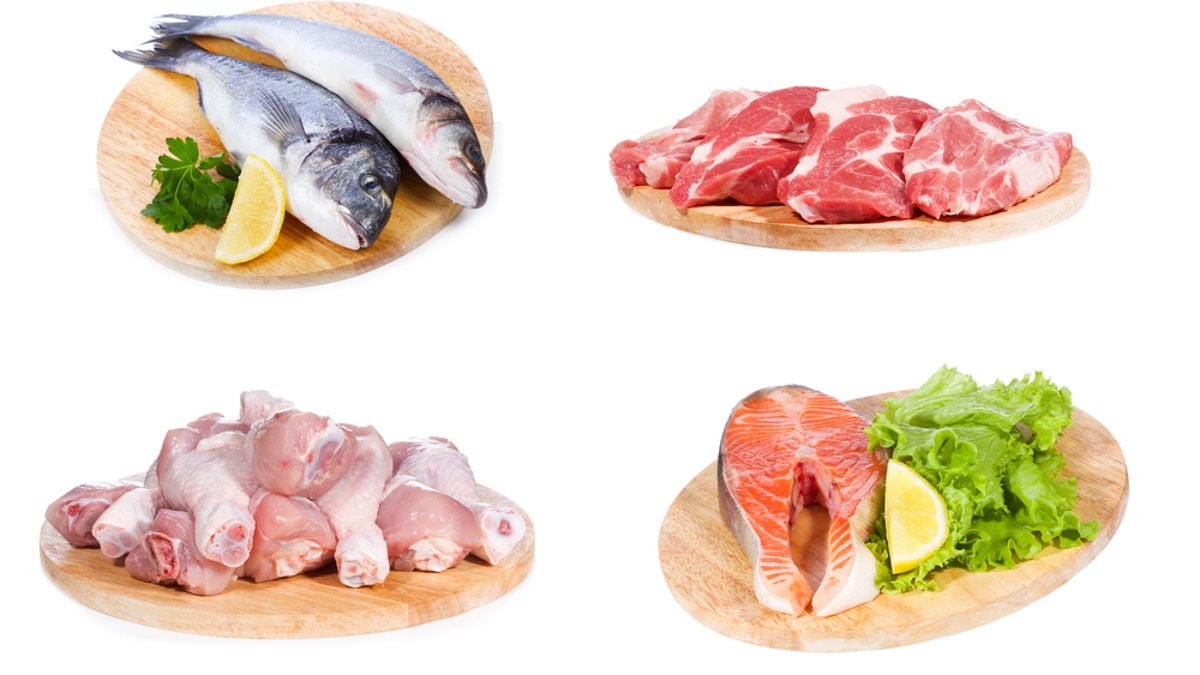
(iStock)
When it comes to chicken and fish, most people think they are safe by eating the leaner protein. But not reading labels can cost you down the line. "Birds in general get sick with common viruses that we can catch," says Dr. Hirt. "Plus, they are pumped with chemicals like arsenic and heavy toxins. People need to see how if you eat an unhealthy animal you end up unhealthy."
See more foods that doctors won't eat at The Daily Meal
More from The Daily Meal
10 Healthy Party Food Makeovers
9 Unhealthiest Store-Bought Cookies
